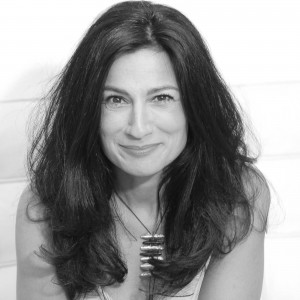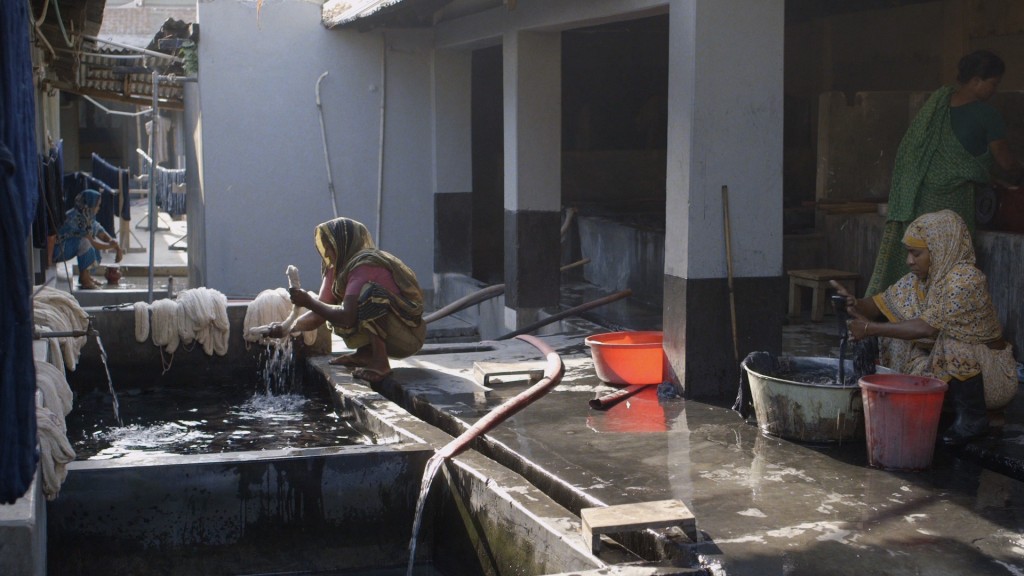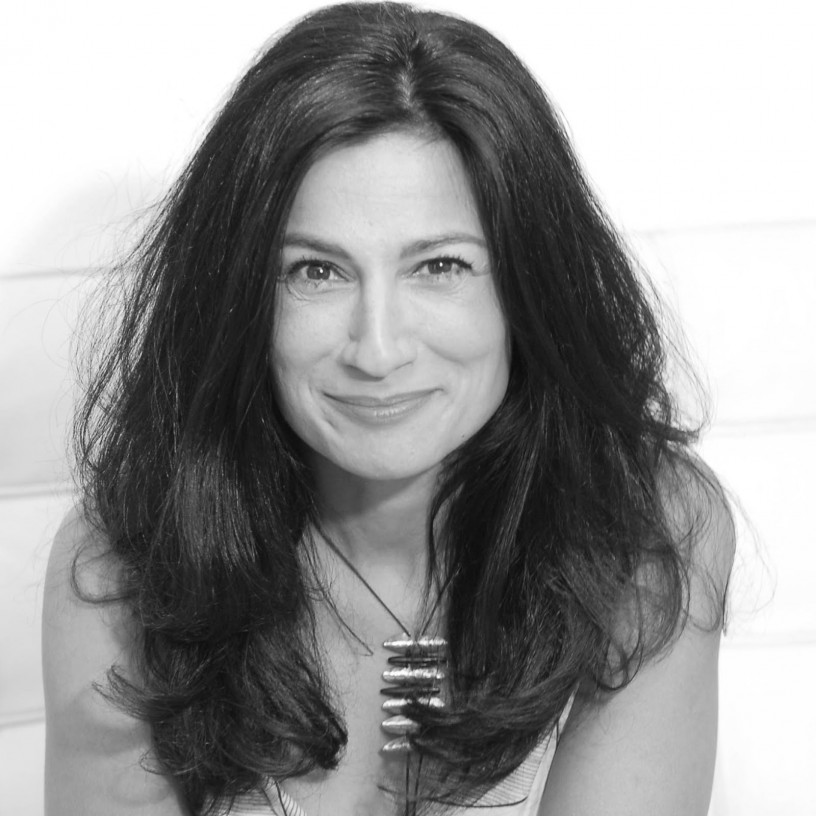 SAFIA MINNEY
SAFIA MINNEY
FOUNDER & CEO, PEOPLE TREE
Safia Minney is founder and CEO of People Tree, a Fair Trade fashion label and online retailer. She initiated World Fair Trade Day over ten years ago, and sees people and the planet central to everything they do as a business. Safia is also featured in The True Cost.
Tell me about your company, People Tree.
People Tree’s DNA is rooted in campaigning for a better trading system that delivers human rights and environmental innovation in production. We are a 100% Fair Trade certified business and the first clothing company in the world to guarantee Fair Trade and environmental production practice throughout the supply chain. We started the first Fair Trade and organic cotton supply chain nearly 20 years ago and are the first company to have certified clothing made in the developing world. We are deeply committed to empowering the poor, protecting the environment and changing the kind of world we live in.
What led you to start the company?
“I believe the secrets of sustainability and well-being in society lie with the farmers and workers in the developing world – with the people”I started People Tree in Japan in 1991. I’m an ‘ethical consumer’ and have always been, even at 20! I didn’t want to spend my money and support big business that exploits people and the environment. I think trade and business can be used for good. I was recognized in 2005 as one of the world’s outstanding Social Entrepreneurs by the World Economic Forum, before I knew what one was! I believe in a hybrid of business and charity to deliver financial, social and environmental benefits. Good business and economic practice can pull people out of poverty, innovate and generate new environmentally benign production methods and supply chains. I knew that increased customer awareness and action could transform our bankrupt, unsustainable economic system into a restorative economy.
Secondly, I started it because of a belief in democracy. I believe the secrets of sustainability and well-being in society lie with the farmers and workers in the developing world – with the people – not in the ivory towers of big corporations and the establishment who are dangerously out of touch.
What inspires you both personally and as a team?
The smiles of the workers: farmers, artisans and tailors. The power of people in solving problems and working in long term partnership.
Where do you get your design inspiration from?
At People Tree we get our design inspiration from the incredible designs and traditional craft skills in the places that we produce. We also look at the market, what our customer likes, as well as major fashion trends too. We love organic and natural textile at People Tree – if we want a new fabric we may invest for 5 years to develop it!
How have you built relationships with your producers and suppliers?
Many Fair Trade groups get in touch with me because they know of our reputation working with artisans and designers over the last 20 years. Suppliers see working with People Tree as the kite mark of Fair Trade, which is very sweet and makes me grateful for the patient and dedicated work our team has done with Fair Trade groups over the years.

The Swallows in Bangladesh: One of People Tree’s many producers.
Why do you think the clothing industry is so crucial to the future wellbeing of our world?
Clothing is fashion. Fashion is linked to culture and music and arts. Fast fashion has led this rapidly downhill. Fair Trade and sustainable fashion can empower the poor, be about social and environmental justice, and transform our economy and societal well- being. Fashion as we know it must stop.
What is the unseen impact of fashion today?
The tragic cost of human life, injury and exploitation. Also, the cost to the planet from pollution and water use.
Do you think business practices and global supply chains have improved or worsened over the years?
“The fashion business model is broken and we urgently need to find alternatives.”Business practices have worsened. Consumerism has reached a cruel momentum speed of a raving car out of control. Fashion companies are trading faster, harder and using the lack of legislation, transparency, consumer awareness and a growing unskilled population of young women in the developing world. The fashion business model is broken and we urgently need to find alternatives.
With increased global connectivity how do you think we can catalyze real change in the industry?
We have to support emerging ethical fashion companies through online shopping and by spreading their campaigns, films and articles through our personal digital networks. We have to put pressure on big fashion businesses to hold them accountable. There are many great independent fashion auditing initiatives like Soil Association, WFTO, FLO, Fairwear and ranking websites that we can tap into and use our shopping as a vote for responsible fashion.
We can also jam at fashion companies through social media if we collectively decide that we don’t accept what they are doing. Over a million people signed up when we, with other organisations around the world, launched the Rag Rage campaign to push for compensation and safe factory conditions for garment factory workers after the Rana Plaza collapse. Undoubtedly this helped launch the Bangladesh Safety Accord, but we need to keep the pressure up!
What other things need to happen to see that kind of change take place?
“I’d also like our first world governments to take responsibility for their nation’s business practice overseas.”I’d like to see a tax break for businesses that make the majority of their products to Fair Trade and environmentally friendly standards. This would make them more affordable and help increase market share and enable investment into more pioneering practice.
I’d also like our first world governments to take responsibility for their nation’s business practice overseas. This would start with Company Directors being accountable for claims within their supply chains – ensuring that if their workers are injured or are killed, or if they don’t meet environmental laws in the production of their goods, they are held accountable. A modern day “Global Village”.
If you could say one thing to consumers what would it be?
It’s cool to care!
You graciously invited us to follow you around the world with our cameras. As we approach the release, what is your hope for the impact of this film?
I hope that the film is more than just a foot in the door, but that it strides over a fashion industry and economic system that is about to pop. That it inspires and motivates people to care about each other and our irreplaceable earth. (This is one battle we need to win for the sake of humanity!)
For more information visit People Tree

